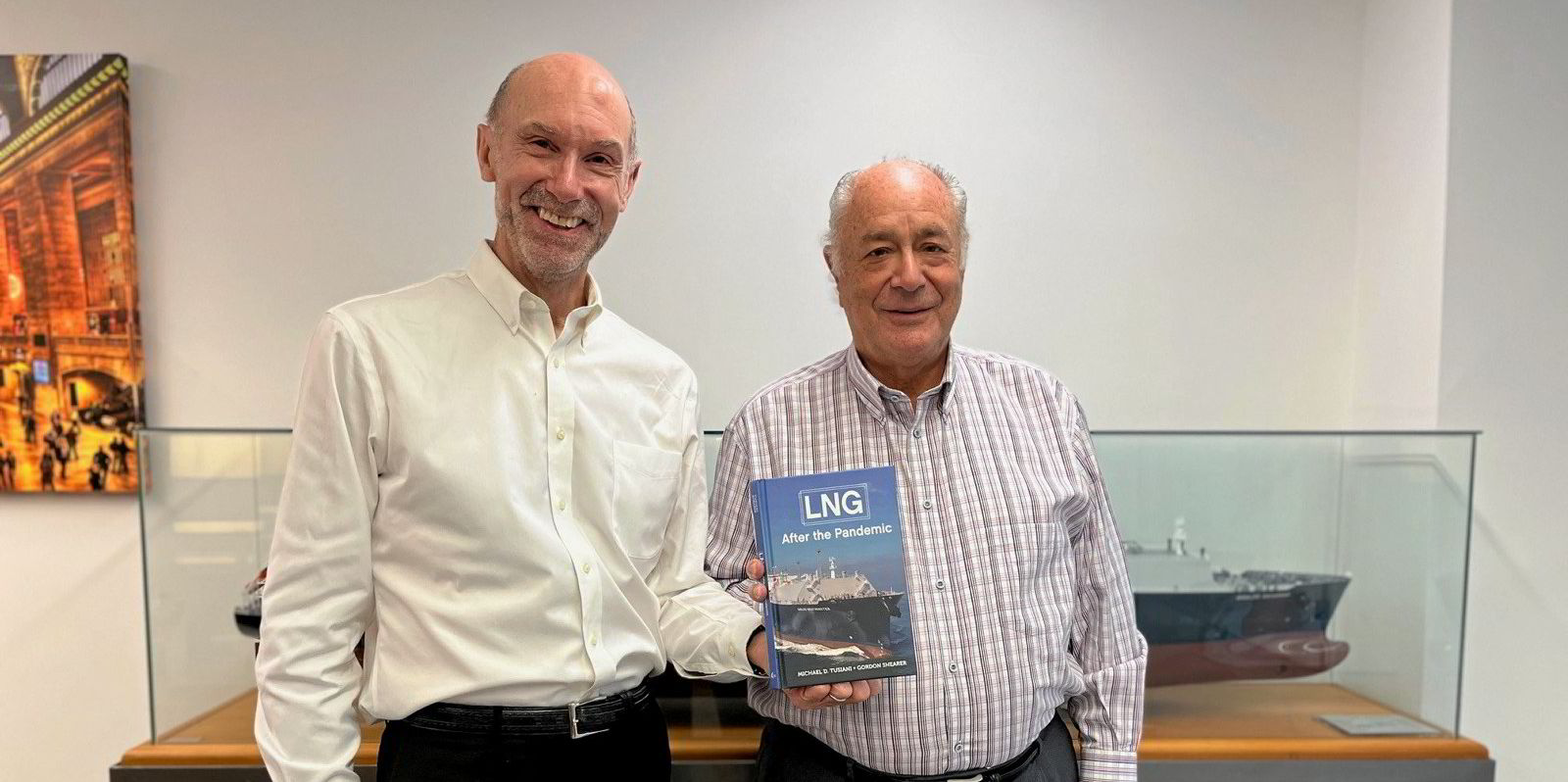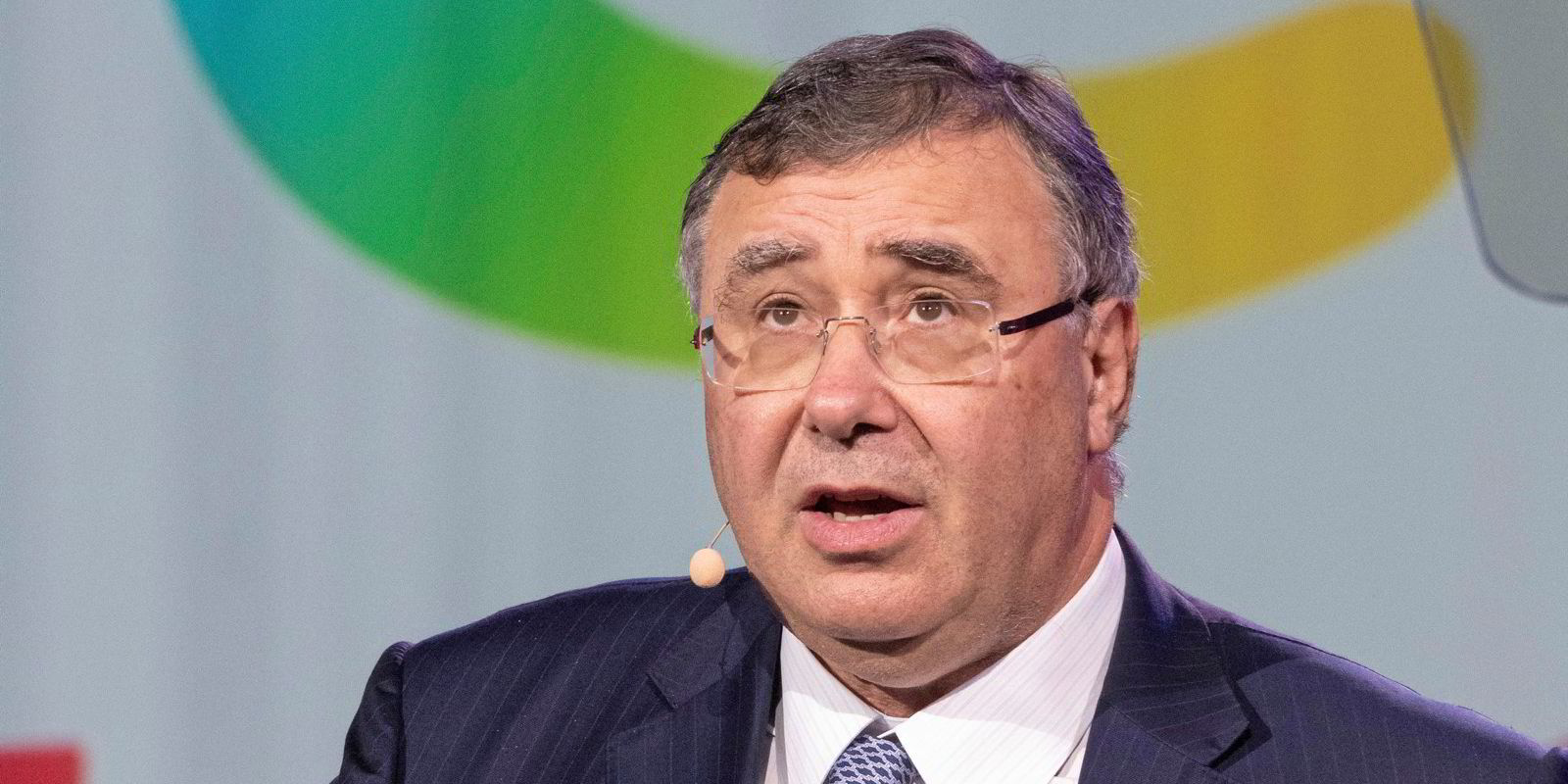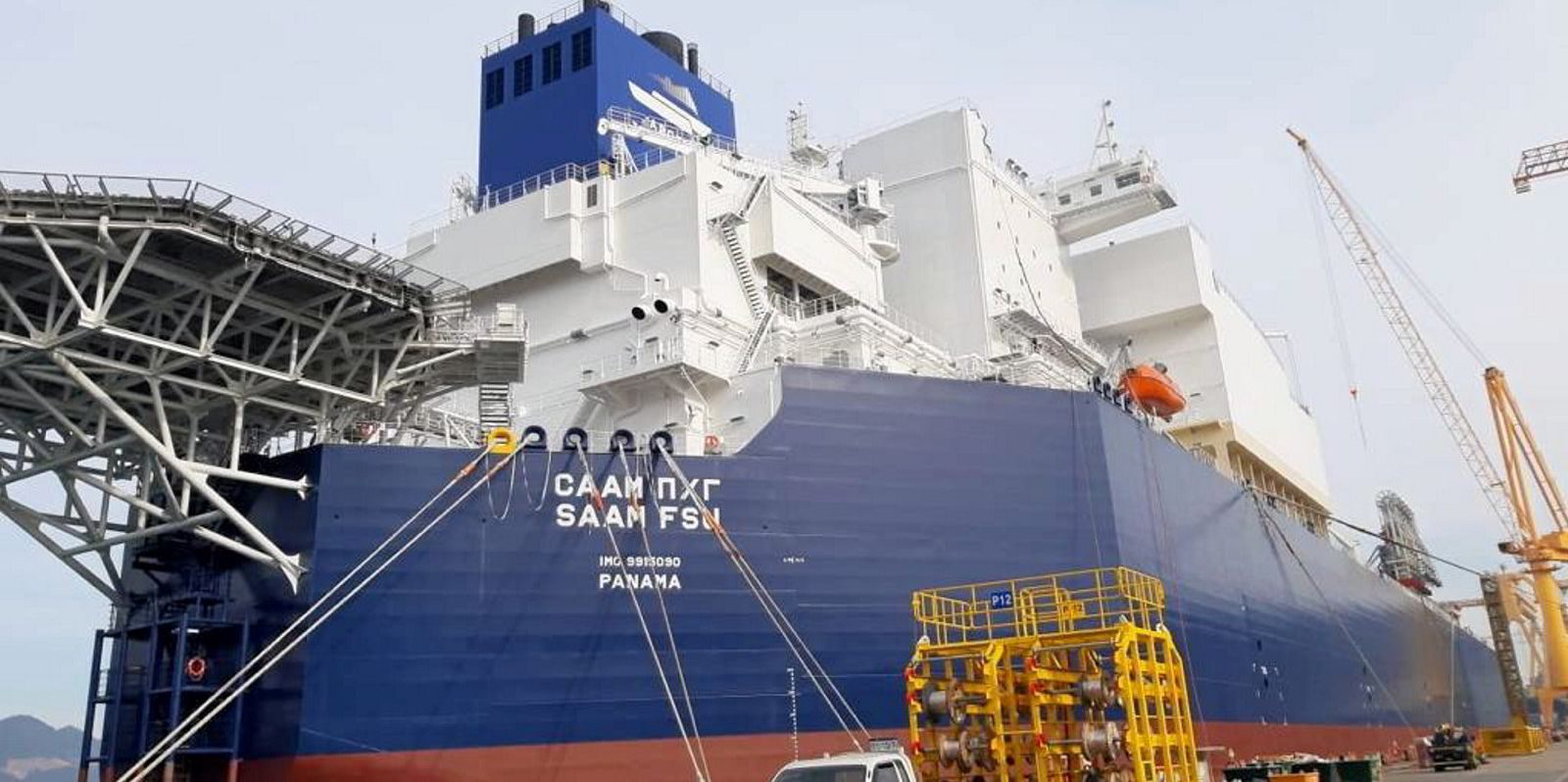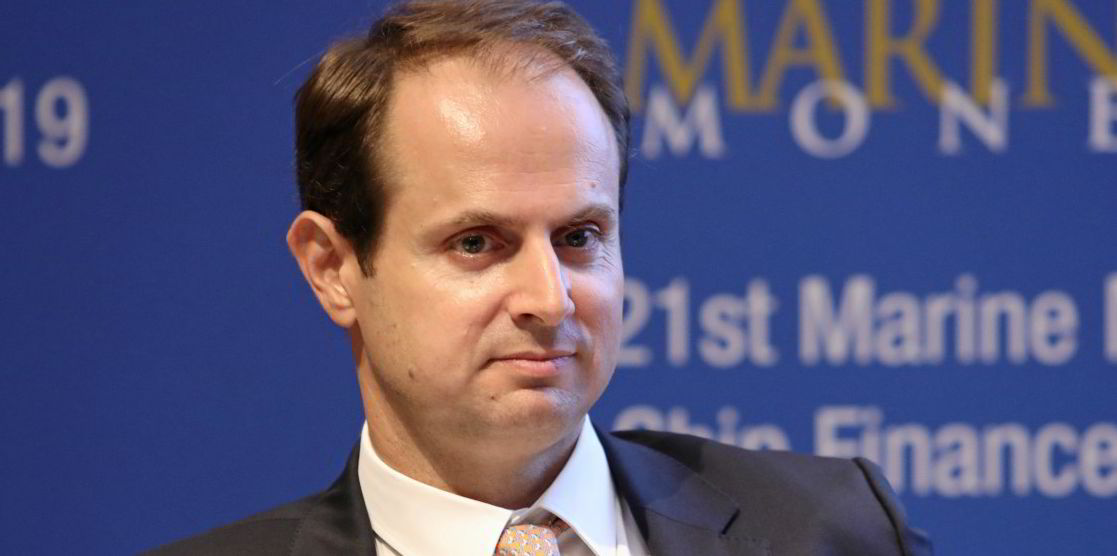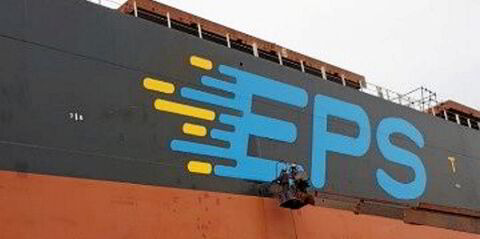People tried all kinds of new things during the Covid lockdowns but Poten & Partners colleagues and doyens of the LNG sector Michael Tusiani and Gordon Shearer chose to write another book together.
The long-time business associates and friends, who have already collaborated on two earlier books, started LNG: After the pandemic in mid-2020 against the backdrop of the heightened moves on decarbonisation and during the post-Covid turmoil that played out in the markets.
But as Poten chairman emeritus Tusiani admitted: “Someone kept moving the goalposts” and the pair paused their writing as Covid played out, starting again in earnest in late-2021 only to watch the new impact from Russia’s invasion of Ukraine hit the markets.
While the pair’s first two books were “very technical in nature”, Tusiani said this one is more of an opinion on how they see the current and future state of the market. But he insisted it is objective and fact-based, with colleagues being brought in to check the data and research.
With decarbonisation, the pandemic and wars accepted, the duo are resoundingly bullish on the future for LNG. The last line of their 163-page book concludes: “LNG has an assured future”.
“It is a commodity that will be needed for decades,” Tusiani said.
Poten senior advisor Shearer enthusiastically pointed to the energy majors’ recent annual results, where top management spoke of expanding their oil and gas portfolios with backtracks on emissions reduction goals for some.
They both highlighted that the US is ready to give the green light to more LNG production and believe those liquefaction plants are going to be around for the next 20 to 30 years.
Energy moves at a price… Climate is still very, very important and we have to solve the problem but it will take some time and regulation
— Michael Tusiani
The authors see LNG production as becoming a “two-horse” race between the US and Qatar, with the US being able to offer the most flexible supply.
They said Russia will complete the first train of its upcoming Arctic LNG 2 project but as a future producer describe the country as “a mere wild card”.
“Russia will suffer from buyers’ lack of trust for many years to come,” they said.
The pair see LNG shipping as having become a commodity in itself. Tusiani said traders were chartering ships because they could not play without a vessel.
“It is like going to the casino and not drawing chips,” he said.
The spread between US and European prices was so great that they could absorb higher freight rates and either use the vessel or sublet it, making money on both.
In the next couple of years, Tusiani believes shipowners with vessels available will “do very well”. Long term, it is less clear who will need tonnage and under what terms.
But he said if rates go too high, projects will go and order their own tonnage and squeeze out the shipowner.
Two-tier market
On the technology side, Shearer said it is becoming harder to squeeze more out of the ships. He points out that no vessel will be ordered for a US project that does not fit through the Panama Canal.
He said Dynagas’ 200,000-cbm vessels seem to have shown the natural limit here, while new importers will likely be requiring smaller parcel deliveries of LNG at the other end of the market.
Downstream, Tusiani and Shearer see a two-tier market for LNG buyers — something that was already in place before the pandemic — that has become more pronounced as LNG prices soared, forcing emerging buyers in Asia out of the market.
Both are adamant that LNG is not a commodity and spend time in the book explaining why it does not behave like one.
Tusiani highlighted that around 75% of LNG is still sold under long-term contracts with little flexibility in them, which he said are the staple of the industry, with those buyers unaffected by the price spikes.
Energy security
Shearer said the way that North America and Europe have commoditised it is to break the supply away from the infrastructure — but that is not really happening anywhere else yet.
“LNG is going to be difficult to commoditise, no question,” Tusiani said.
On the overarching issue of decarbonisation, for now, the two long-standing LNG industry names see energy security as having “trumped” climate concerns, leading to what they describe as “conflicting policy developments and further uncertainty and confusion”.
“Energy moves at a price,” Tusiani said, adding that carbon-free alternative fuels are going to be expensive and questioning whether the individual consumer, especially those in developing countries, can absorb those prices.
“Climate is still very, very important and we have to solve the problem, but it will take some time and regulation.”
